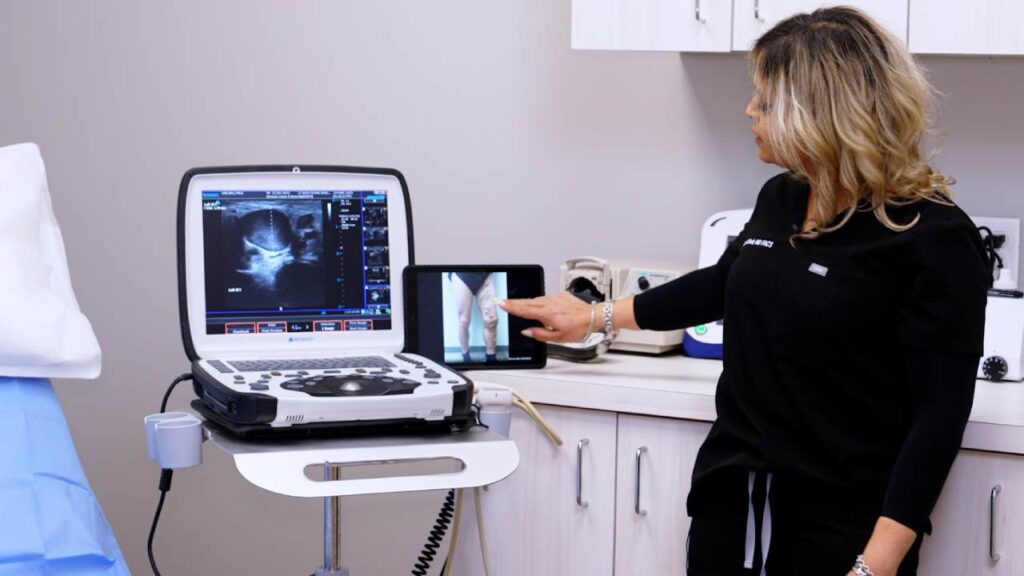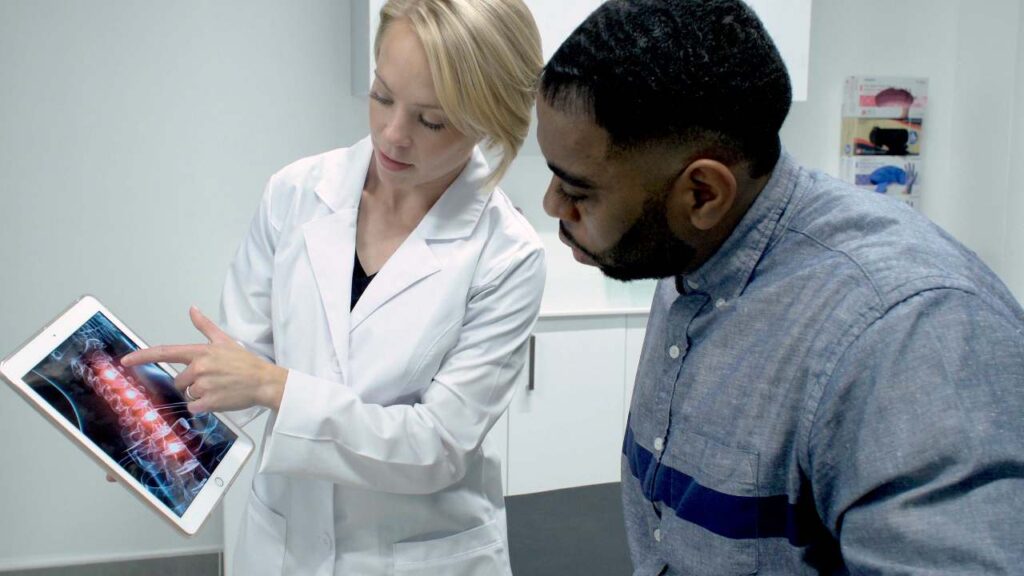Diagnosis
In order for one to be diagnosed with the back pain, they have to be physically examined by a doctor. The physical examination will help the doctor in determining the root cause of the pain so that they can prescribe the appropriate treatment. The physical examination will include tasks such as determining the patient’s ability to lift their legs, sit, walk and stand. If the pain is experienced when doing these tasks the patient will be asked to rate the pain intensity using a scale of one to ten. The doctor will also question the patient on their ability to function or perform their duties while the pain is present. The tests will not only try to narrow down the root cause of the pain, but they will also estimate how much pain the patient can tolerate before they break down. After the diagnosis, if the root cause is still not clear the doctor will request for more tests that might be able to give concrete answers like blood tests, nerve studies, x-rays, and CT or MRI scans.
Treatment
Mild back pains can be treated with homemade remedies and after a short while they disappear. There are some chronic back pains however that will not go away after using homemade treatments and will require much stronger treatment procedures to relieve the pain. Back pain is considered one of the most complex conditions because it varies from one person to another. Some individuals experience constant and extreme pain that does not go away while some severe experience pain that goes away after a while. The treatment given for back pain depends on certain factors such as the pain intensity. For mild back pains, pain medication can be purchased in the pharmacy without a prescription or a hot or cold pack might do the trick. Bed rest is not a back pain treatment, and individuals with back pains are highly advised against it.
Individuals are advised to try as much as possible to maintain their routine or daily tasks. If possible take a walk or do simple activities like household chores. Be as active as much as possible and only avoid those activities that cause pain when doing them as opposed to refraining from all activities in fear of getting hurt. If the treatment currently being used does not have any positive effect after several days or weeks, it might be time to consult your doctor about other stronger treatments.
Medications
There are various types of medications that doctors prescribe to patients with back pain depending on the type of pain they have.
Over-the-counter (OTC) pain relievers
This category consists of NSAIDS (Nonsteroidal anti-inflammatory drugs) like Motrin IB, ibuprofen, Aleve (naproxen sodium) and Advil. These drugs have the capability to relieve pain associated with mild pain in the back. The medication should be taken as directed by the physician as misuse of them can result in very adverse side effects. If the over the counter pain killers do not turn out to be effective on your back pain consider asking the doctor to prescribe NSAIDS.
Muscle relaxants
These include salves, balms, ointment or creams rubbed on the skin at the ailing area and are effective back pain treatment.
Our Orthopaedic surgeon Dr. Faisal Mahmood is the best in the field and will provide the appropriate treatment for your back.







